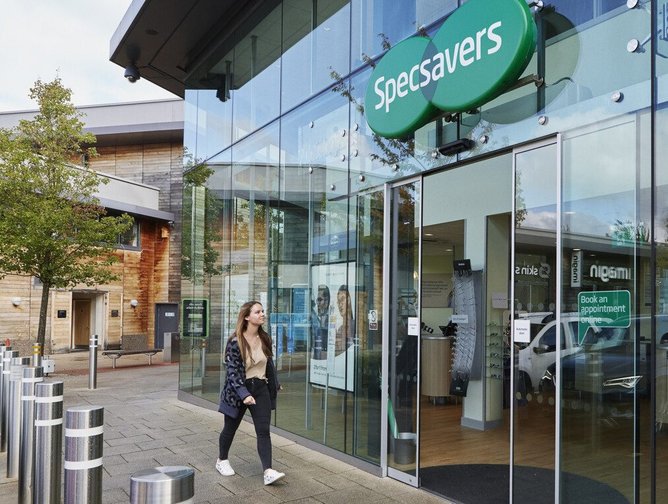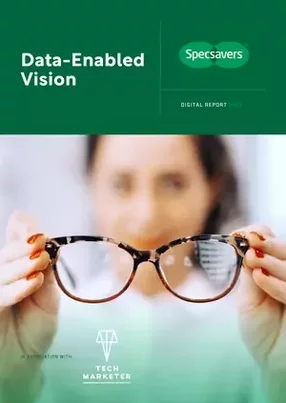Everybody surely knows about Specsavers. Its long-running ad campaign (“Should've gone to Specsavers …”) has made sure of that. That is, arguably, one of the most recognisable campaigns ever ─ and, as it was made in-house, says a lot for the ethos of a company that in just 38 years has grown to be the number one optical brand in many of the markets it serves. This success is no accident. Since founding the company in 1984 at Guernsey, where it's still headquartered, Doug and Dame Mary Perkins completely changed the landscape from a model that depended on isolated local opticians to an interconnected franchise model whereby a uniform customer experience could be guaranteed.
To maintain and grow this dominance, the founders put customer experience at the top of their agenda, says CRM and Analytics Director Tina Christison. Being knowledgeable and accessible is essential to delivering world-class customer experiences, but what Specsavers' 38 million customers across the globe really remember is great human interactions: the special care and attention that its people provide every day. “With this many people coming to our stores, clearly the ability to retain their custom is vital: data and analytics are the keys to ensuring a great customer experience.”
Christison and Specsavers' Global Data Director Helen Mannion have been working closely together to transform the company into a data-driven organisation, optimising its customer communications, while retaining the family feeling among partners and employees. Mannion came to Specsavers in 2018 to lead its data transformation programme: “It's centred around enabling the use of data within the organisation, while at the same time we have been delivering a series of projects to showcase the benefits that data brings. Our aim is that ultimately everyone in Specsavers will have their own data story and be able to articulate how data can benefit them in their own role, and deliver customer value.”
The data-driven organisation
She has a very clear vision of her goals as a leader. “We are on a mission to transform Specsavers into a data-driven organisation. We want data to drive future strategy, and make it easier for teams across the business to realise their goals and aspirations.
We have a very strong lean data team, with a huge amount of knowledge and expertise, and they are making great progress. They are a diverse team not afraid to pull on each other’s strengths especially when things don’t go to plan! It is a hugely supportive and caring culture with a focus on helping each other achieve more and having buckets of fun in the process. As one of the team puts it: “We live the mantra ‘A happy team is a productive team’ and this is a true reflection of how the employees feel.”
But the team don’t just have lots of fun they also have a strong delivery focus and along-side a wider data community and business stakeholders are making a real impact on customer, partner and staff experiences. The significant progress on the transformation journey is born from their willingness to share their experiences and build on the great work from other teams. We are also always on the look-out for eager colleagues and talented data professionals across the wider business who we can form a partnership with to achieve more at a faster pace. A member of the team comments: “We see our stakeholders as an extension of our team. We share in their pains and we share in the successes.”
You cannot separate sophisticated data capture and storage from analytics, she says. “In any organisation, it is important that data and analytics functions and users are aligned and working together to help the organisation achieve its ambitions. The drive to democratise data and the growing capability for users of all abilities to perform advanced analytics requires organisations to work harder to create a joint partnership between data and analytics practitioners. This shift will create an environment where everyone has the opportunity to become an analyst.”
Tina Christison is quick to agree: “We are working to improve the effectiveness of our CRM activities, and the key enabler to that is data. We want to have better access to our customers' data to enable us to deliver relevant messages across all the communication channels that we have, and we want to be able to effectively evaluate that activity and assess how it helps retain our existing customers and make it easy for them to buy more regularly from us. So data and technology play a huge part in the ongoing development of the business.” Now, for example, customers may book online, and are automatically reminded beforehand at the same time being told exactly what to expect, what they need to bring, and how long the appointment is likely to take. This has reduced no-show and cancellation rates by 15%, she says.
Reaching across the business
Despite its marketing successes over the years, Helen Mannion found an organisation where data was held locally rather than centrally, with much analytics work being outsourced to third-party agencies. “There was an appetite to use data, but little opportunity. We have implemented a new data platform using Microsoft Azure and Power BI to visualise and analyse that data. In partnership with Tina's team, we have added predictive modelling in our CRM activity so we are moving steadily into more advanced data science areas.” With some 70% of customer data now migrated to the new platform and growing numbers of users across the business and supply chain, the culture around data is changing fast, she says, with training programmes in place to give staff the skillsets they need.
The work of Helen Mannion's team is reaching every part of the enterprise. In finance. For example, legacy recording processes had built up over time, largely based on Excel and Access. “Just a single process, to deliver an invoice, for example, can have multiple semi-manual processes within it, but much of that can be automated, so we are looking to automate a lot of that flow, and that will save a huge amount of time. Our team is doing an initial process as a showcase, then we'll upskill the finance team so they can roll it out to all their other processes themselves.”
A central data team could never take on all the work required to automate the hundreds of processes within finance, marketing and other business teams but it can show the way and impart the skills needed to digitise their processes. In this way, the transformation of the business as a whole can be achieved largely in-house without the need to bring in third-party partners.
For now, she is focusing on the low-hanging fruit. A good example is found in the work she is doing with the CRM team. “Historically there wasn't any predictive modelling within CRM, which is quite unusual considering the size and scale of the company. People are very keen to get their hands on data and obtain the insights it can give them – for example in 2020 the clinical teams looked at the impact of the first lockdown on glaucoma and they identified that two-thirds of referrals were missed at that time. That information and other data sources from the eye care sector was shared with the NHS and Glaucoma UK and fed into the government's decision to allow optometrists to stay open for wider care to relieve pressure on the NHS, prevent avoidable blindness and provide services to the public who needed them so badly from broken spectacles to brain tumours. Being able to access data of this sort will impact the whole organisation. More and more people have come to us wanting to start self-serving and learning how to develop the insights themselves and that's really helping us on our data transformation journey!” Tina Christison endorses this wholeheartedly. “During the pandemic, having better access to data has enabled us to do things we never could before, enabling us to spot opportunities and do things differently. And we've probably only scratched the surface of the potential that exists!”
Building data-aware teams
Building a coherent data team and a collaborative culture has been very important to Mannion's strategy. “I'd like everybody at Specsavers to realise they have their own data story to tell. We want everybody to be able to use data easily and answer common questions in minutes. So we invest significant time as a team to transition our knowledge and we ask other talented data professionals from across the business to share theirs too. We have a growing community of data professionals that share their insights, write user guides, ask and answer questions, and develop a culture of adding to and improving the work that's already been done.”
One original method we are trialing is to invite departments to second people who want to develop their data skills to join the data team for a limited period. They come with a data project that they own and learn best practices while they develop that. “It's one way to train the wider organisation more effectively – creating a ripple effect. If we can train five people, and they can train another five people, gradually we'll get to everybody!”
There was limited recruitment during the pandemic but things are looking up .“We are on a recruitment drive at the moment, and we have done really well and filled the majority of roles. However, the more technical data roles have proved slightly harder to fill. We are helped by the fact that Specsavers is such an attractive company to work for; there's a lot of job satisfaction working for a company with a mission to change people’s lives for the better through improving their sight and hearing. From a data perspective we feel honoured to ensure data fulfils its true potential. It's an exciting journey because we're into a big transformation: the impact that we're able to create as a team is large, and we're very focused on learning and development. People really like that. Speaking personally, my number one objective is always that my team are happy and getting satisfaction from the work they do.”
Covid-19 gave rise to an even greater demand from the business to understand performance at pace. Rising to this challenge, the data team at Specsavers was recognised at the WARC 2020 marketing awards in the Best Use of Data category, the company, in the words of the citation, “Found a new way to use online appointment booking data to get people to take a last-minute eye test and built a new system that allowed it to activate across digital channels. With COVID prevention measures reducing eye test capacity in every Specsavers store, this access to live appointment volumes, and scalability across stores, channels, audiences and times, has proved invaluable in managing customer volumes through the crisis.”


- Helen Mannion

